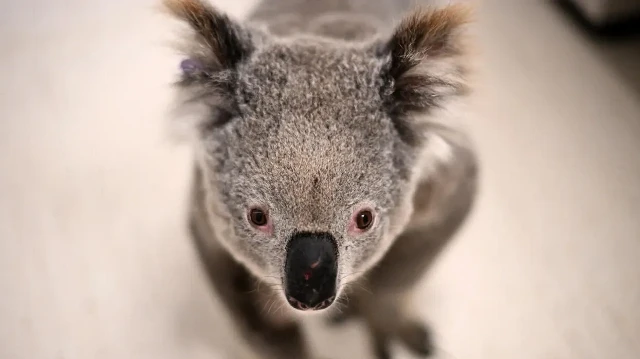
Pesticides and Veterinary Medicines Authority approves single-dose vaccine to save most at-risk species
Australia has approved a koala chlamydia vaccine for nationwide rollout in an effort to save koalas from the potentially fatal sexually transmitted disease.
The Australian Pesticides and Veterinary Medicines Authority has approved the single-dose vaccine, which was developed by the University of the Sunshine Coast (UniSC) after over 10 years of research, the university said in a statement on Wednesday.
This approval allows the treatment to be distributed nationwide, offering protection to one of the country's most at-risk species, and means it is no longer confined to trial settings.
Both UniSC and the Queensland University of Technology (QUT) have created separate vaccines, but UniSC’s became the first to receive approval. While the QUT vaccine requires two doses, the UniSC vaccine is effective with just one.
Chlamydia remains one of the primary threats to koalas, leading to painful urinary tract infections, infertility, blindness, and death.
Professor Peter Timms, a microbiology expert at UniSC, emphasized that the single-dose version makes the vaccine feasible for use in the wild.
“We knew a single-dose vaccine – with no need for a booster – was the answer to reducing the rapid, devastating spread of this disease, which accounts for as much as half of koala deaths across all wild populations in Australia,” he said.
Koala populations in Queensland, New South Wales, and the Australian Capital Territory were declared endangered in 2022, with South East Queensland’s wild koala population now numbering fewer than 16,000.
“Some individual colonies are edging closer to local extinction every day, particularly in South East Queensland and New South Wales, where infection rates within populations are often around 50% and in some cases can reach as high as 70%,” the professor added.
On the bright side, Dr. Sam Philipps, UniSC senior researcher, said that "the vaccine reduced the likelihood of koalas developing symptoms of chlamydia during breeding age and decreased mortality from the disease in wild populations by at least 65%,” after being trialed on hundreds of koalas.







